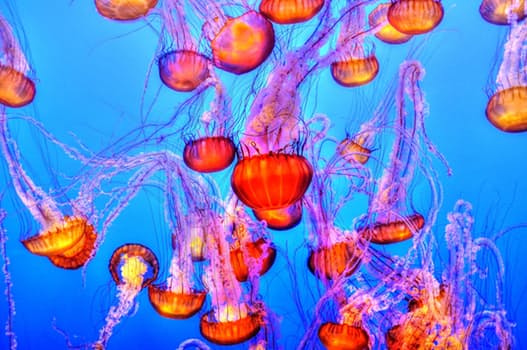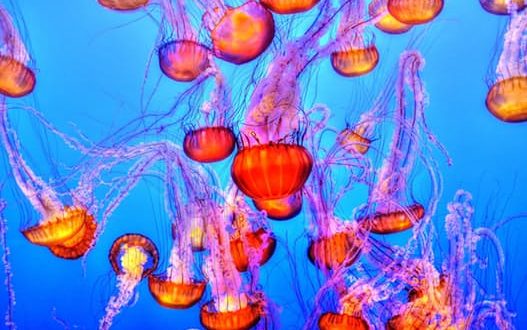Why do you hear the ocean in a shell?
There is a popular folk myth that if one holds a seashell—specifically, most often, a conch shell—to one’s ear, one can hear the sound of the ocean. The rushing sound that one hears is, in fact, the noise of the surrounding environment, resonating within the cavity of the shell.
Is chalk a mineral?
Chalk /ˈtʃɔːk/ is a soft, white, porous sedimentary rock, a form of limestone composed of the mineral calcite. Calcite is calcium carbonate or CaCO3. It forms under reasonably deep marine conditions from the gradual accumulation of minute calcite plates (coccoliths) shed from micro-organisms called coccolithophores.
 Can you get stung by a dead jellyfish?
Can you get stung by a dead jellyfish?Jellyfish can sting with their tentacles if they brush against you when you’re swimming in the ocean. You also can get stung if you step on a jellyfish, even a dead one. Usually, jellyfish stings will hurt, but are not emergencies.
How far apart are Russia and Alaska?
Russia and Alaska are divided by the Bering Strait, which is about 55 miles at its narrowest point. In the middle of the Bering Strait are two small, sparsely populated islands: Big Diomede, which sits in Russian territory, and Little Diomede, which is part of the United States.









Join the Discussion
Type out your comment here:
You must be logged in to post a comment.